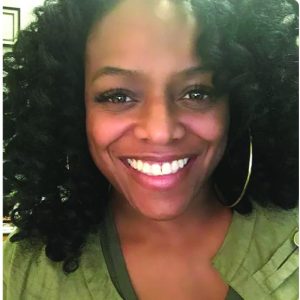Women’s Center hosts discussion on importance of Black women’s mental health
March 17, 2021
Having grown up witnessing Black people’s mental health not being taken seriously, Kadihjia Kelly decided to get into counseling to help people of color who have suffered racial trauma and mental health issues.
“What drove me to really want to be in this field was that I grew up in Detroit, born and raised, and I noticed a lot of time in my community, people that looked like me never had access to this type of counseling,” she said.

Kelly runs Stars Counseling, an individual and group mental health consultation in Appleton that uses Critical Race Theory to support the unique needs and concerns of people of color.
Kelly spoke at a virtual event sponsored by the UW Oshkosh Women’s Center on March 12 on the importance of mental health for Black girls and women.
Kelly said the experiences of Black Americans vary tremendously, but they have shared experiences that define their mental health.
“Part of this shared experience is facing racism, discrimination and inequality that can significantly play a role in a person’s mental health,” she said.
Kelly said being perceived and treated as less because of the color of your skin can be detrimental to one’s mental health.
Her practice focuses specifically on Black women’s mental health because she felt that they are the most neglected community within mental health counseling.
She wanted to be able to provide mental health counseling to people who looked like her because white mental health providers have racial biases and lack cultural competencies to support Black women.
“Black people have historically been negatively affected by prejudice and discrimination in the healthcare system, and unfortunately because of this people still have these negative experiences when they attempt to seek [mental health] treatment,” she said.
According to Kelly, Black women often report mental illness symptoms that are linked to their experiences with racism, but they are glossed over because mental health providers don’t acknowledge racial trauma to be a mental health issue.
Kelly said it is important for Black women to have mental health providers that look like them and that can understand their experiences.
Kelly’s practice helps Black women recognize how the racial injustices they face in everyday life can have a negative impact on their mental health.
One way she does this is by addressing how being in predominantly white spaces can create mental health issues for Black people as they feel excluded and have to code switch, or culturally adjust to their white environment, Kelly said.
This includes Oshkosh and the Fox Valley, where white people make up over 50% of the population.
“Being in a predominantly white environment can lead a Black girl and woman into seclusion and having feelings of wanting to isolate,” she said.
Kelly said Black families also often experience generational trauma from surviving years of racist experiences.
But because Black women are often raised to be strong against the racism they experience in everyday life, the mental health issues that can occur from these experiences often don’t get addressed, Kelly said.
“I think about my grandmother telling me all the hard times she had and how she survived through it all, and so to me she was a very strong Black woman and so I had to emulate that,” she said.
Kelly said when she would go to her grandmother about her experiences with racism growing up, her grandmother would tell her to acknowledge that racism has always existed and that she just needs to be strong.
“That set the tone for what I needed to do, which meant that none of my mental health was being taken care of because I had to be the strong Black woman,” she said.
She said there is often a stigma that Black families don’t need counseling because of their strong community.
But Kelly said all of her clients have experienced racial trauma, so Black women’s mental health needs to be taken more seriously.
Kelly said Black women who constantly face racially demeaning and hostile environments can experience racial battle fatigue.
Racial battle fatigue is a race-related stress response to consistent racist environments and individuals that resembles post-traumatic stress disorder, Kelly said.
This can happen through persistent experiences of racial microaggressions or constantly having to explain racism to white people.
“To have to be the one that literally has to explain their pain for folks to actually see them as a human being — that takes a lot of energy,” she said.
Kelly provides individual counseling as well as peer support groups that explore the specific needs of women and girls of color and considers the intersection of race and gender.
You can find more information about Kelly’s work and Stars Counseling at her website starscounseling.com.













